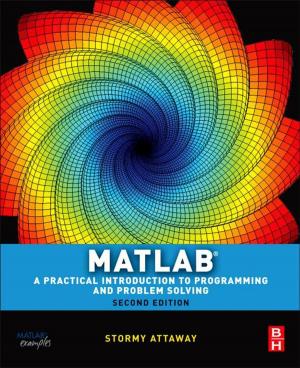Complex Fuzzy Abstraction: The Brain Logic
Artificial Intelligence
Nonfiction, Computers, Advanced Computing, Engineering, Computer Engineering, Computer Science| Author: | Subhajit Ganguly | ISBN: | 9781507009673 |
| Publisher: | Tech Reads | Publication: | December 21, 2014 |
| Imprint: | Language: | English |
| Author: | Subhajit Ganguly |
| ISBN: | 9781507009673 |
| Publisher: | Tech Reads |
| Publication: | December 21, 2014 |
| Imprint: | |
| Language: | English |
Taking abstraction as the starting point, we build a complex, self-organizing fuzzy logic system. Such a system, being built on top of abstraction as the base, turns out to be just a special outcome of the laws of abstraction. As the system is self-organizing, it runs automatically towards optimization. Using such a system in neural networks, we may come as close as possible to the workings of the human brain. The abstract fuzzy optimization is seen to follow a Gaussian distribution.
Natural processes are vastly emergent phenomena and each new result is always the source of new emergence. To cope with nonlinear control problems, binary logic is no longer sufficient. What we need is an ideal Fuzzy Logic that not only can process complex numbers with utmost efficiency, but also ‘thinks’ in terms of complex numbers. Such a system also needs to be as simple as possible for us and for machines to work with.
Taking abstraction as the starting point, we build a complex, self-organizing fuzzy logic system. Such a system, being built on top of abstraction as the base, turns out to be just a special outcome of the laws of abstraction. As the system is self-organizing, it runs automatically towards optimization. Using such a system in neural networks, we may come as close as possible to the workings of the human brain. The abstract fuzzy optimization is seen to follow a Gaussian distribution.
Natural processes are vastly emergent phenomena and each new result is always the source of new emergence. To cope with nonlinear control problems, binary logic is no longer sufficient. What we need is an ideal Fuzzy Logic that not only can process complex numbers with utmost efficiency, but also ‘thinks’ in terms of complex numbers. Such a system also needs to be as simple as possible for us and for machines to work with.















